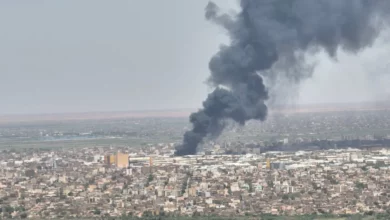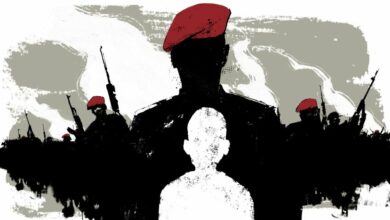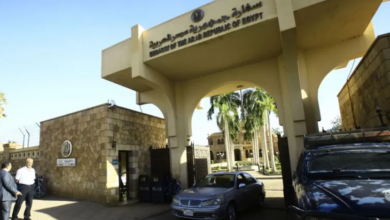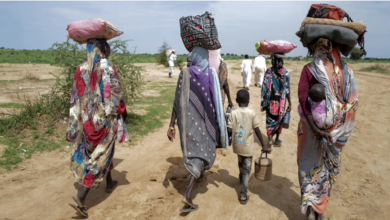Juba – Shelling between northern and southern Sudanese troops forced aid workers to evacuate the town of Agok at the southern tip of the disputed Abyei region on Friday, a humanitarian official said.
The country's south is just over three weeks away from declaring independence, but Khartoum and Juba have yet to decide who should control the fertile, oil-producing Abyei region, raising fears the two sides could return to open conflict.
Khartoum seized Abyei's main town on 21 May, pushing as far south as the Kiir River, known as Bahr al-Arab in the north. The waterway has since become the front line between the two sides.
"This morning, from about 10 am, there was shelling on both sides of the river. Later there was shelling just a little bit north of Agok…All humanitarians are being pulled out of Agok," the official, who asked not to be named, told Reuters.
The southern army said it had clashed with northern troops in the area, but it was not immediately clear if that was connected to the reported shelling near Agok.
A spokesman for the northern military was not immediately available to comment.
The southern military said it exchanged fire with northern forces in Abyei Wednesday. The northern army denied the report, suggesting internal southern rebel militias may have been behind the clashes.
Southern army spokesman Philip Aguer said there had been more clashes Friday, but did not give details.
"There was a clash in the same bridge area. The SAF (the northern Sudanese Armed Forces) came back. SPLA (the south's Sudan People's Liberation Army) fought them," he said. "We think the area might be overrun by SAF."
Negotiators from both sides have been meeting in neighboring Ethiopia since Sunday. Despite reaching an agreement "in principle" to demilitarize Abyei, no final deal has emerged yet.
Southerners voted for independence in a January referendum promised in a 2005 peace agreement that ended a long and brutal civil war. About two million people died in that conflict.




